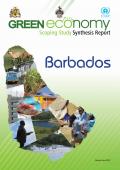This report aims to help environmental and other competent authorities in OECD countries to promote green business practices among small and medium-sized enterprises (SMEs). It analyses different ways to establish environmental regulatory requirements for facilities with low environmental risk (most of which are SMEs). It also examines how to design and apply information and market-based tools to promote compliance with such requirements and adoption of cleaner technologies and good environmental management practices. The report suggests several ways to increase the effectiveness of these promotion tools with respect to the SME community.
The report addresses the roles of environmental authorities, local governments, business organisations and financial institutions in the greening of small businesses. It reviews in detail the experience of France, Ireland, Korea, the Netherlands and the UK (England, Wales, and Scotland) and draws on examples of several other countries.

This synthesis report focused on five key sectors (agriculture, fisheries, building, transportation and tourism) in Barbados to scope the transition to a green economy on the island. In particular, the study focuses on the applicability of the accepted UNEP definition of green economy to Small Islands Developing States, of which Barbados is one.
Barbados is vulnerable to both fluctuations in the price of its imported fossil fuels and at risk from the destruction of its marine and coastal ecosystems from climate change therefore the report states that the pursuit of a greener path to economic development is highly attractive to the country.
This paper provides an overview of current government schemes promoting corporate reporting of greenhouse gas (GHG) emissions and analyses their main building blocks. It describes the drivers and challenges for governments, companies and investors in dealing with GHG reporting and includes 4 case studies examining in more depth the domestic GHG emission reporting schemes of the UK, France, Japan and Australia. This work is part of a project with UNCTAD, the Climate Disclosure Standards Board (CDSB) and the Global Reporting Initiative (GRI) on consistency of climate change reporting.
The report summarizes the findings of a study on the challenges and opportunities for small business development and decent job creation in the waste management sector. Based on research conducted in three municipalities of Free State, South Africa, the report highlights the vulnerable situation of waste pickers and makes recommendations for better waste management. The research was commissioned by the ILO Free State SME Development Initiative and conducted by the University of Western Cape and the University of Johannesburg.
